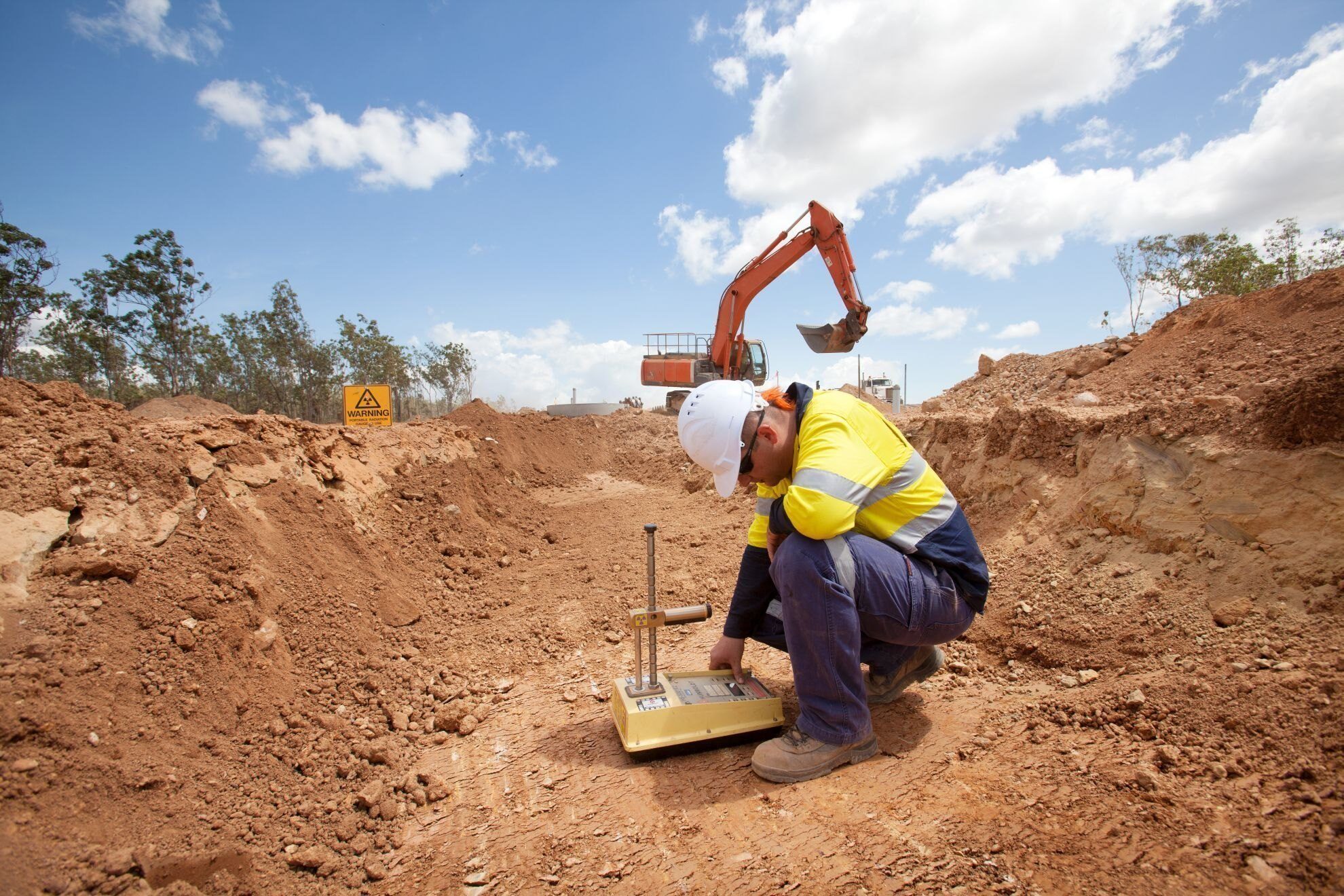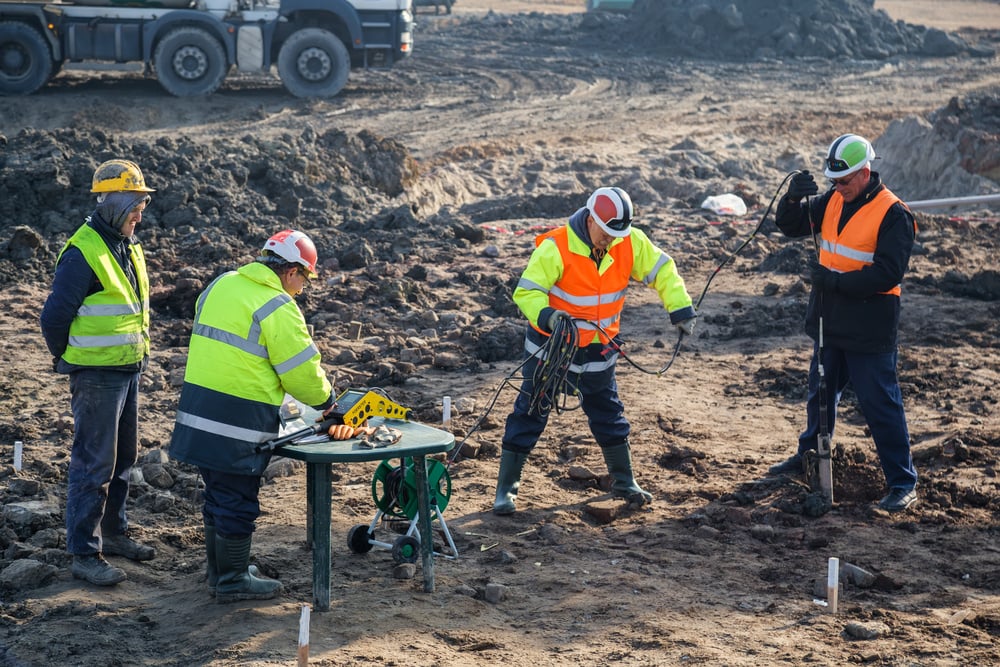Getting The Specialized Geotechnical Engineering Solutions To Work
Getting The Specialized Geotechnical Engineering Solutions To Work
Blog Article
Get This Report on Specialized Geotechnical Engineering Solutions
Table of ContentsThe Facts About Specialized Geotechnical Engineering Solutions RevealedThe Specialized Geotechnical Engineering Solutions StatementsSpecialized Geotechnical Engineering Solutions Things To Know Before You Get ThisThe smart Trick of Specialized Geotechnical Engineering Solutions That Nobody is Discussing
They carry out website investigations, gather examples, perform lab examinations, and analyze data to examine the viability of the ground for construction jobs. Based upon their searchings for, geotechnical designers offer suggestions for structure layout, incline security, preserving structures, and mitigation of geotechnical risks. They work together with various other specialists, such as architects, architectural engineers, and building teams, to make sure that geotechnical factors to consider are incorporated into the overall job style and application.
Foundation Design: Geotechnical designers play a crucial function in making foundations that can securely support the intended structure. They evaluate the soil problems and lots needs to determine the suitable foundation type, such as shallow foundations (e.g., footings), deep structures (e.g., heaps), or specialized techniques like soil enhancement. They take into consideration variables such as negotiation restrictions, birthing capacity, and soil-structure communication to create optimum structure layouts.
Specialized Geotechnical Engineering Solutions for Beginners
Here are some kinds of geotechnical engineers: Structure Designer: Foundation designers focus on designing and analyzing structures for structures - Specialized Geotechnical Engineering Solutions. They assess the dirt conditions, tons demands, and website features to figure out the most proper foundation kind and design, such as superficial foundations, deep structures, or specialized techniques like pile structures
They do field testing, accumulate samples, and analyze the accumulated data to define the dirt residential or commercial properties, geologic developments, and groundwater conditions at a website. Geotechnical Instrumentation Designer: Geotechnical instrumentation engineers concentrate on monitoring and determining the behavior of soil, rock, and frameworks. They install and preserve instrumentation systems that check elements such as dirt settlement, groundwater levels, incline activities, and structural displacements to analyze performance and offer very early cautions of potential problems.
In the workplace atmosphere, geotechnical engineers make use of specialized software program tools to execute calculations, develop layouts, and evaluate information. Specialized Geotechnical Engineering Solutions. They prepare records, testimonial job requirements, communicate with clients and staff member, and coordinate task tasks. The workplace setting offers a favorable atmosphere for study, analysis, and partnership with other experts associated with the task
They regularly go to job sites to carry out website examinations, assess geotechnical conditions, and gather data for analysis. These brows through entail traveling to different locations, in some cases in remote or challenging terrains. Geotechnical engineers may do dirt sampling, conduct tests, and monitor building activities to make certain that the geotechnical facets of the task are being carried out appropriately.
Unknown Facts About Specialized Geotechnical Engineering Solutions
Geotechnical engineers also operate in specialized geotechnical labs. In these facilities, they perform experiments, carry out examinations on dirt and rock examples, and assess the engineering residential properties of the materials. Geotechnical research laboratory designers function extensively in these environments, managing testing tools, operating instruments, and recording data. They collaborate with other research laboratory personnel to make sure accurate and reliable testing outcomes.
Preserving Walls: Producing wall surfaces that hold back soil to stop landslides and provide stability on sloped surfaces. Embankments and Earthworks: Creating embankments for roads, railways, and dams to guarantee they stay stable under anxiety. The mining industry depends greatly on geotechnical continue reading this engineering to make certain the safety and durability of its procedures.
With this in mind, we have developed our program to prepare students for success. The Geotechnical Design program at the College of Delaware uses possibilities for sophisticated study and navigate to this website study in: Dirt and rock mechanics Soil-structure interaction Constitutive modeling Computational geomechanics Foundation and planet frameworks design Ground renovation Incline security and landslide stablizing Liquefaction of soils and earthquake design Lab characterization of geomaterials and soil reinforcement Environmental geotechnics Offered the solid demand for renovation to our country's infrastructurethe American Culture of Civil Designers offered the united state
Geotechnical design is a branch of civil design; nonetheless, it involves utilizing scientific methods and principles to collect and interpret the physical buildings of the ground. Geotechnical engineers are associated with all phases of the layout of frameworks, from idea to building. Their work is vital in the style and planning process as they assess the stability of soil, clay, silt, sand, and rock, prior to construction starting.
Little Known Questions About Specialized Geotechnical Engineering Solutions.
This is followed by a ground investigation based upon the findings of the desk research and involves test pitting and sampling to reveal any kind of potential problems. Geotechnical engineers work within multidisciplinary teams, sustained by intermediate and younger designers along with by CAD technicians. As a senior geotechnical engineer on a hydro plant task, tasks might consist of joining technical evaluations (e.g., peer reviews), tailings clog evaluations, dam security evaluations, and discover here other research studies associated with the design and building of mine waste centers.
While some professionals specialise entirely in geotechnics, others may work under titles like design geologist or ground engineer within similar capacities. As a geotechnical engineer, you'll require to: develop and preserve relationships with clients and other specialists included in the site, throughout each projectmaintain safety standards on site bear in mind cost effects when you make recommendationsstudy geological maps and airborne photos from a variety of sources and from various time periodsexamine building intends to see how practical they are based on your understanding of the siteinvestigate dangers or geological risks for the sitesearch for ecologically sensitive features, such as land fill begin to create accurate and interpretive ground modelsplan field investigationsdrill and evaluate examples of bedrock, soil, groundwater and extra materials supervise various other specialists on sitesolve technical issues as they arise, such as unexpected frameworks at drill sitesmonitor conditions during and after building and construction to see to it structures are steady in the short and lengthy termadd data accumulated on website to your first researchcreate geotechnical estimations, drawings, and 2 or three-dimensional computer system models analyzing the datamake recommendations about the recommended use the site.
There are great deals of opportunities to meet brand-new individuals, as you'll collaborate with a series of experts at every site. The work can be demanding as you might be in charge of the security of others while on website. There is also a high level of financial duty, as the referrals you make can have significant price implications.

Report this page